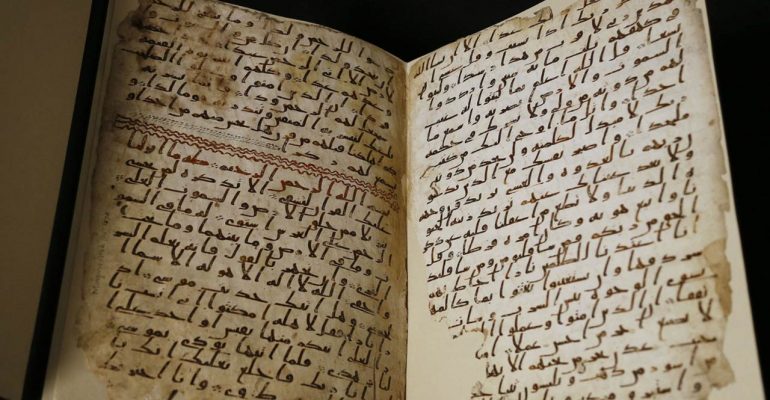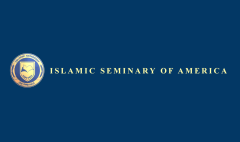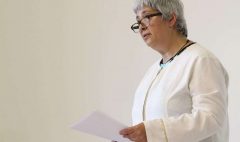Prince Charles warns of cultural destruction on UAE visit of the oldest fragment of the Koran
November 7, 2016 2023-08-29 11:33Prince Charles warns of cultural destruction on UAE visit of the oldest fragment of the Koran

Prince Charles warns of cultural destruction on UAE visit of the oldest fragment of the Koran
The Prince of Wales, on a visit to the United Arab Emirates, has warned of the deliberate destruction of “mankind’s cultural heritage”. Prince Charles was presenting a digital replica of what could be oldest fragment of the Koran, discovered last year by the University of Birmingham. In a written foreword, he hailed this “extraordinary” manuscript. But he warned “so much of mankind’s cultural heritage is being deliberately destroyed or threatened”. Prince Charles said these “remarkable leaves… represent a sacred document of immense of religious and cultural significance to people across the globe”.
The display launches a year of cultural collaboration between the UK and the UAE, with the replica of the Koran fragments being presented to the crown prince of Abu Dhabi, Sheikh Mohammed bin Zayed Al Nahyan.
Media captionHow the BBC broke the news of the discovery of the ancient Koran Prince Charles said the manuscript’s discovery had “captured the world’s imagination”. “At a time when so much of mankind’s cultural heritage is being deliberately destroyed or threatened, we can only be heartened by the discovery of a previously unrecognized treasure,” he wrote. The so-called Islamic State group has deliberately smashed historical artefacts and cultural sites in Iraq and Syria.
The original Koran fragment, at least 1,370 years old, remains in the University of Birmingham. The university had held the manuscript since the 1920s, but when it was radio-carbon dated last year it was found to be much older than anyone had expected. The range of dates, established by tests carried out by the University of Oxford, showed that the manuscript was among the earliest surviving fragments of the Koran and could be the oldest in existence.
The parchment, with verses of the Koran written on either sheep or goatskin, was put on public display in Birmingham. But for the first time, a digital replica of the manuscript has been taken out of the UK and is being put on show at events in the United Arab Emirates. It will also mark the symbolic return, at least in replica form, of a manuscript that was made in the Middle East in the earliest years of the Muslim faith. An investigation into the likely origin of the Birmingham manuscript showed that it was related to a similar document held in Paris, which had been brought to Europe by a vice-consul of Napoleon.
The Birmingham manuscript had been acquired in the 1920s by Alphonse Mingana, an Assyrian, from what is now modern-day Iraq, whose collecting trips to the Middle East were funded by the Cadbury family. The university’s vice-chancellor, Sir David Eastwood, said the Birmingham Koran manuscript was of “huge significance to Muslim heritage and the academic study of Islam”.
Continue reading at: BBC








